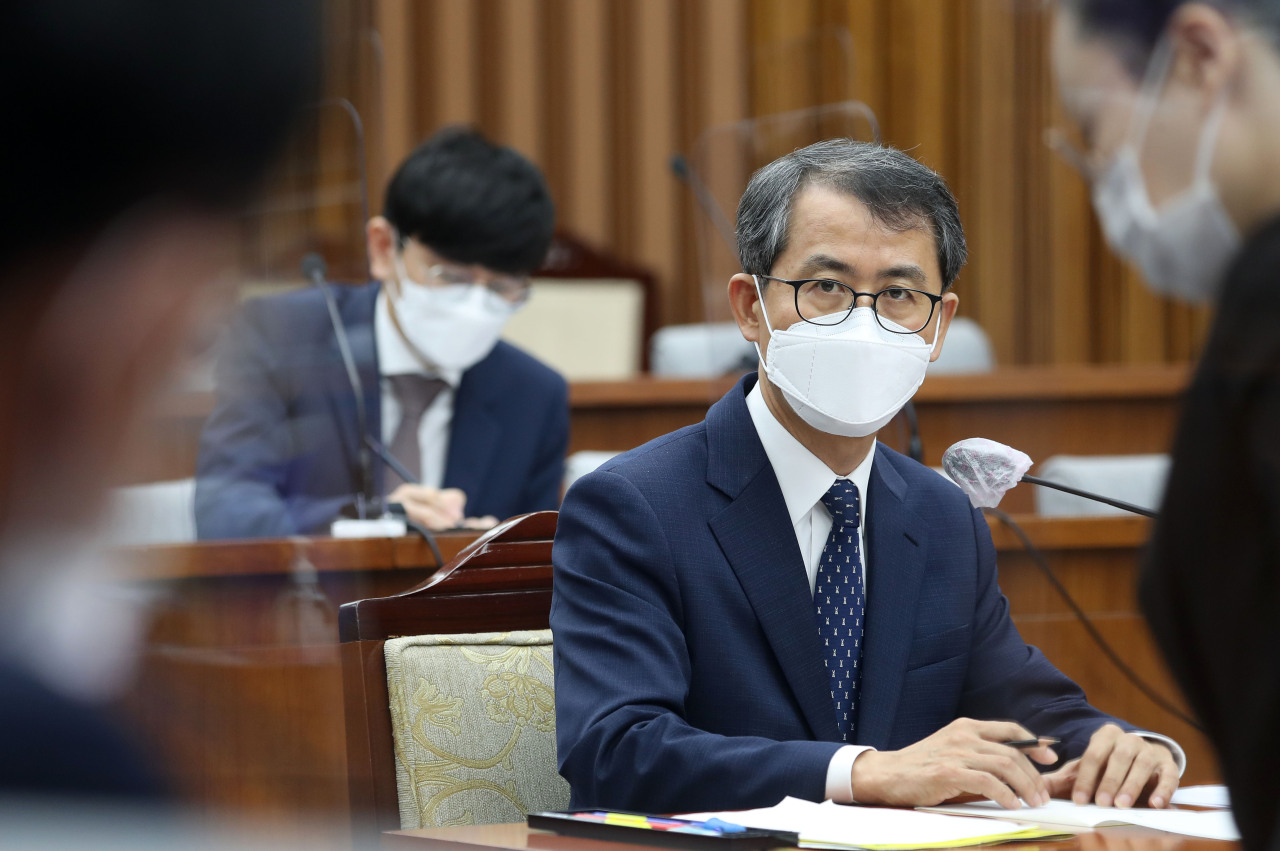 |
Lee Heung-gu (Yonhap) |
Lee Heung-gu, the 10th justice of the Supreme Court to be named by President Moon Jae-in, took office Tuesday, raising anticipation that the top court will rule more in favor of the disadvantaged.
Lee‘s replacement of outgoing justice Kwon Soon-il leaves only three justices named by former conservative President Park Geun-hye on the top court’s bench of 13 judges.
Lee, who emphasized the protection of minorities as an important responsibility in his parliamentary confirmation hearing, is likely to add weight to the Supreme Court’s progressive tone.
“I will keep in mind that human rights is the most important constitutional value, and will do my best to make a fair and just judgment. I will work in all sincerity so that the socially disadvantaged or minorities are not neglected and guaranteed their due rights,” Lee said in a statement Tuesday.
“I will constantly think about what justice and the true values that should be realized in society are. I will contribute toward bringing the Korean society together by presenting a criteria of legal values that everyone can relate to, through sufficient discussions.”
Nearly half of the top court bench has now been filled with members of three major progressive legal societies or study groups whose names roughly translate into Our Law Study Group, International Human Rights Law Study Group and Group of Lawyers for Democratic Society.
Chief Justice Kim Myeong-su of the Supreme Court was a member of the Our Law Study Group, which later became the International Human Rights Law Study Group. Kim was the founding leader of the latter group.
Justices Park Jung-hwa and Roh Jung-hee were members of the Our Law Study Group, and justice Kim Sang-hwan was in the International Human Rights Law Study Group.
Justice Kim Seon-su was vice president of the Group of Lawyers for Democratic Society.
Lee, who was convicted of violating the National Security Law in 1986, was also in the Our Law Study Group while working as a judge in Seoul.
Lee said during the confirmation hearing that Our Law Study Group was a gathering for researching and discussing legal principles and the trial system of labor law, and that it “cannot be seen as a group of left-leaning judges.”
Many observers say the increase in the number of progressive justices at the top court led to its recent rulings in favor of Gyeonggi Province Gov. Lee Jae-myung in a case of election law violation and for a leftist teachers’ union.
Others say Korean society’s general perceptions of the rights of the socially disadvantaged and freedom of expression have changed, and that such changes are reflected in the top court justices’ interpretation of the law.
As for the case of the Korean Teachers and Education Workers Union, two of the three justices named by the conservative former President Park – Park Sang-ok and Kim Jae-hyun -- agreed that the government’s decision to outlaw the union was unlawful.
In the case of a labor-management agreement about hiring the children of Hyundai-Kia employees who were killed in industrial accidents, Park and Kim also said the automaker should hire their children as per the agreement.
Kim even said in the case of Gov. Lee that freedom of expression in televised debates must be widely accepted, and that Lee could not be punished on charges of publicizing false information.
When former President Park named Park Sang-ok and Kim Jae-hyun as top court justices, some members of the opposition Democratic Party of Korea were against confirming their appointment, as Park had been the prosecutor in a 1987 case in which police tortured to death a university student activist and tried to cover it up.
By Kim So-hyun (
sophie@heraldcorp.com)








![[Today’s K-pop] Blackpink’s Jennie, Lisa invited to Coachella as solo acts](http://res.heraldm.com/phpwas/restmb_idxmake.php?idx=644&simg=/content/image/2024/11/21/20241121050099_0.jpg)